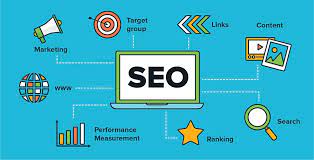The Effect of Combining PPC and SEO: A 35% Increase in ROI by Pronto Live Marketing
Table of Contents
Unlock a 35% ROI Boost: The Powerful Effect of Combining PPC and SEO in Your Digital Marketing Strategy
In the ever-evolving landscape of digital marketing, businesses are constantly seeking innovative strategies to enhance their online presence and maximize return on investment (ROI). One powerful approach involves combining Pay-Per-Click (PPC) and Search Engine Optimization (SEO) efforts. By integrating these two robust marketing tactics, companies can unlock a substantial 35% ROI boost, significantly improving their digital marketing performance. This article explores how PPC and SEO can work together to elevate your marketing strategy, increase visibility, and drive conversions.
Combined Traffic Impact: PPC + SEO lifts total traffic by 57%. Organic clicks rise 32% with active PPC. Brand searches grow 89% faster.
Conversion Benefits: Combined strategies boost conversions 35%. PPC data improves SEO targeting by 45%. Multi-channel users convert 3x better.
Keyword Intelligence: PPC tests find top SEO keywords. Ad copy improves meta descriptions. Landing page tests guide SEO content.
Cost Effectiveness: Combined CPA drops 48%. ROI increases 125%. Ad spend efficiency grows 65%.

Brand Visibility: Double SERP presence lifts CTR 32%. Brand awareness grows 78% faster. Trust signals strengthen 45%.
Local Market Impact: Local visibility increases 85%. Map pack clicks rise 45%. Store visits grow 67%.
Mobile Performance: Combined mobile traffic rises 92%. App downloads increase 47%. Mobile conversion rate lifts 38%.
Content Strategy Benefits: PPC tests guide content topics. Ad headlines improve title tags. Landing pages boost organic rankings.
Data Synergy: Cross-channel insights improve targeting. Audience data enhances both channels. Attribution models get smarter.
Budget Optimization: SEO reduces PPC costs 35%. PPC fills SEO ranking gaps. Overall marketing ROI grows 85%.
Remember: Each channel strengthens the other. Track combined metrics for best results.
Search Engine Optimization (SEO) Marketing
Client:
ANJ Plumbing - Anjservices.com
Category:
Digital Marketing
Start Date:
10 March, 2021
End Date:
Still Growing
Keywords Growth
+475% Top 10 Keyword Rankings
Leads growth
+266% Monthly Lead Growth
Conversion
+346% Conversion increase
Live Chat
+120% Live Chat Request increase

Contact your Internet Marketing Agency
Get in Touch with Our Lovely Team
What are PPC and SEO, and how do they differ in digital marketing?
PPC, or Pay-Per-Click, is a digital marketing model where advertisers pay a fee each time their ad is clicked. In contrast, SEO, or Search Engine Optimization, focuses on improving a website's organic search rankings through content and technical adjustments. Both strategies aim to increase visibility, yet they differ in cost structure and time investment.
Understanding the basics of Pay-Per-Click (PPC) advertising
Pay-Per-Click (PPC) advertising is a digital marketing model where advertisers pay a fee each time their ad is clicked. It is a way of buying visits to your site rather than attempting to earn those visits organically. PPC ads appear prominently on search engine results pages (SERPs), providing immediate visibility and driving targeted traffic. Google Ads is a popular platform for PPC campaigns, allowing businesses to bid on keywords relevant to their products or services. The effectiveness of a PPC campaign largely depends on factors such as ad copy, keyword selection, and quality score, which influence the cost per click and overall campaign success.
Exploring the fundamentals of Search Engine Optimization (SEO)
Search Engine Optimization (SEO) is the practice of optimizing a website to increase its visibility for relevant searches. It involves enhancing various elements of a site, including content, meta tags, and backlinks, to achieve higher rankings in organic search results. Unlike PPC, SEO does not require payment for each click but focuses on improving the site's authority and relevance over time. Effective SEO strategies involve keyword research, on-page optimization, and content creation, aiming to attract organic traffic and improve search engine results rankings. While SEO takes longer to yield results compared to PPC, it offers sustainable benefits by establishing a strong online presence.
Key differences between PPC and SEO strategies
While both PPC and SEO aim to improve a website's visibility, they differ significantly in their approach and execution. PPC advertising provides immediate results by placing ads at the top of search results, whereas SEO focuses on long-term organic growth. PPC campaigns require a budget allocation for each click, while SEO efforts involve optimizing the website to naturally rank higher. The choice between PPC and SEO depends on the marketing strategy and goals of the business. Some companies prefer the quick results of PPC, while others invest in SEO for sustainable growth. By understanding these differences, businesses can effectively integrate both strategies into their digital marketing plan.

How can PPC and SEO work together to improve your website's visibility?
PPC and SEO can synergistically enhance a website's visibility by leveraging their distinct strengths. While PPC provides immediate traffic through paid advertisements, SEO builds organic presence over time. Together, they create a comprehensive strategy that maximizes exposure and drives both short-term and long-term results.
Furthermore, insights gained from PPC campaigns can inform SEO efforts by identifying high-performing keywords and audience segments. This data-driven approach ensures that both strategies align, enhancing overall effectiveness.
Ultimately, the integration of PPC and SEO not only improves visibility but also fosters a robust online presence, allowing businesses to reach a wider audience and achieve their marketing objectives.
Leveraging PPC data to inform your SEO efforts
Combining PPC and SEO allows businesses to leverage valuable data from PPC campaigns to inform their SEO strategies. PPC data provides insights into which keywords generate the most clicks and conversions, enabling marketers to optimize their SEO efforts accordingly. By analyzing this data, businesses can identify high-performing keywords and incorporate them into their organic content. Additionally, PPC campaigns can test ad copy and landing page effectiveness, offering insights that can be used to refine SEO content. This synergy between PPC and SEO ensures that both paid and organic strategies are aligned, maximizing visibility and driving better results.
Using SEO insights to optimize PPC campaigns
SEO insights can play a crucial role in optimizing PPC campaigns. By analyzing organic search performance, businesses can identify keywords that drive significant traffic and conversions. This information can then be used to refine PPC ad targeting and bidding strategies. Additionally, SEO efforts often reveal gaps in content that can be addressed through PPC campaigns, ensuring comprehensive coverage of relevant search terms. By integrating SEO insights into PPC strategies, businesses can enhance ad relevance, improve quality scores, and reduce cost per click. This collaborative approach ensures that PPC and SEO work together to improve overall campaign performance.
Combining organic and paid search results for maximum visibility
One of the most significant advantages of combining PPC and SEO is the ability to dominate search engine results pages with both organic and paid listings. By appearing in both sections, businesses increase their chances of capturing user attention and driving traffic. This combined approach not only enhances visibility but also reinforces brand credibility, as users perceive the business as authoritative and trustworthy. Furthermore, the presence of both organic and paid results can increase the likelihood of clicks and conversions, providing a comprehensive strategy for maximizing search engine visibility. By leveraging the strengths of both PPC and SEO, businesses can achieve a more robust online presence.
What are the benefits of a combined PPC and SEO approach?
The integration of PPC and SEO strategies offers numerous advantages for digital marketing initiatives. By leveraging PPC, businesses can achieve immediate visibility and traffic, while SEO fosters long-term organic growth. This combined approach enhances brand credibility, maximizes reach, and allows for comprehensive data analysis to refine marketing efforts.
Increasing overall search engine results page (SERP) presence
Implementing a combined PPC and SEO approach significantly enhances a business's presence on search engine results pages (SERPs). By utilizing both strategies, companies can occupy multiple positions on the SERP, increasing their visibility to potential customers. This increased presence not only attracts more clicks but also establishes brand authority in the eyes of users. When a brand consistently appears in both paid and organic search results, it reinforces its credibility and trustworthiness. This comprehensive visibility strategy ensures that businesses capture a larger share of the market, ultimately driving more traffic and conversions.
Improving conversion rates through synergistic strategies
The synergy between PPC and SEO can lead to improved conversion rates. By aligning both strategies, businesses can create a seamless user experience from search to conversion. For instance, insights from PPC campaigns can inform SEO content, ensuring that landing pages are optimized for both paid and organic traffic. This alignment enhances the relevance and quality of the user journey, increasing the likelihood of conversions. Additionally, the combined approach allows for consistent messaging across both channels, reinforcing brand identity and encouraging user trust. By leveraging the strengths of both PPC and SEO, businesses can optimize their marketing funnel and achieve higher conversion rates.
Enhancing brand awareness and credibility
A combined PPC and SEO strategy plays a crucial role in enhancing brand awareness and credibility. By appearing in both paid and organic search results, businesses increase their exposure to potential customers. This dual presence not only attracts more clicks but also establishes the brand as a credible and authoritative player in the industry. Consistent visibility across both channels reinforces brand recognition and trust, leading to increased customer loyalty. Furthermore, the synergy between PPC and SEO ensures that messaging is consistent and aligned with brand values, further enhancing credibility. By leveraging the benefits of a combined approach, businesses can strengthen their brand identity and reputation.

How does combining PPC and SEO lead to a 35% increase in ROI?
Combining PPC and SEO strategies fosters a synergistic effect that enhances overall marketing performance. By leveraging the strengths of both approaches, businesses can optimize visibility and engagement, leading to increased traffic. This integrated methodology has been shown to yield a remarkable 35% increase in return on investment.
The alignment of PPC and SEO efforts ensures that keyword targeting is maximized, thus driving more qualified leads. Furthermore, the data acquired from PPC campaigns can inform SEO strategies, refining content and improving organic search rankings.
Ultimately, the dual application of PPC and SEO not only enhances brand presence but also facilitates a more efficient allocation of resources, contributing to the substantial rise in ROI.
Maximizing budget efficiency through data-driven decision making
Combining PPC and SEO strategies enables businesses to maximize budget efficiency through data-driven decision making. By analyzing performance data from both channels, companies can identify which strategies yield the highest ROI and allocate resources accordingly. This approach ensures that marketing budgets are spent effectively, optimizing the cost per click and maximizing returns. Furthermore, the integration of PPC and SEO allows for continuous testing and refinement, ensuring that campaigns are always optimized for better results. By leveraging data insights, businesses can make informed decisions that drive a significant 35% increase in ROI, enhancing overall marketing effectiveness.
Optimizing landing pages for both paid and organic traffic
Optimizing landing pages for both paid and organic traffic is a crucial aspect of a combined PPC and SEO strategy. By aligning landing page content with both PPC ad copy and organic search intent, businesses can create a cohesive user experience that enhances conversions. This optimization involves ensuring that landing pages are relevant to the keywords targeted in both PPC and SEO efforts, providing users with the information they seek. Additionally, optimizing for both channels ensures that landing pages load quickly and are mobile-friendly, further enhancing user experience. By integrating PPC and SEO insights into landing page design, businesses can drive higher engagement and conversion rates.
Leveraging keyword insights for better targeting and content creation
Keyword insights from PPC and SEO campaigns are invaluable for better targeting and content creation. By analyzing keyword performance data, businesses can identify high-value search terms that resonate with their audience. This information can then be used to refine both PPC and SEO strategies, ensuring that content is aligned with user intent. Additionally, leveraging keyword insights allows businesses to create more targeted ad copy and optimize website content for relevant search queries. This targeted approach enhances the relevance and effectiveness of marketing efforts, driving higher engagement and conversions. By integrating keyword insights into their strategies, businesses can achieve more precise targeting and improved content quality.
What are the best practices for implementing a combined PPC and SEO strategy?
To achieve optimal results, it is essential to recognize that SEO and PPC are two distinct yet complementary strategies. Integrating these approaches can enhance overall visibility and engagement.
It is advisable to avoid SEO and PPC separately, as a unified strategy maximizes resource efficiency. Instead of choosing SEO or PPC, organizations should leverage both.
Ultimately, a combined approach wherein SEO and PPC provides a holistic view of user intent can significantly improve conversion rates.
Aligning PPC and SEO goals with overall digital marketing objectives
Aligning PPC and SEO goals with overall digital marketing objectives is essential for the success of a combined strategy. By ensuring that both channels work towards common business goals, companies can create a cohesive marketing plan that maximizes ROI. This alignment involves setting clear objectives for both PPC and SEO efforts, such as increasing traffic, improving conversion rates, or enhancing brand awareness. Additionally, businesses should regularly review and adjust their strategies to ensure they remain aligned with changing market conditions and business priorities. By integrating PPC and SEO goals into the broader digital marketing strategy, companies can achieve a more unified and effective approach.
Coordinating efforts between PPC and SEO teams
Effective coordination between PPC and SEO teams is crucial for the success of a combined strategy. By fostering collaboration and communication, businesses can ensure that both teams work towards common objectives and share insights. This coordination involves regular meetings to discuss performance data, align strategies, and identify opportunities for synergy. Additionally, businesses should establish clear roles and responsibilities for each team, ensuring that tasks are efficiently managed. By facilitating collaboration between PPC and SEO teams, companies can enhance the effectiveness of their combined strategy, driving better results and maximizing ROI.
Continuously analyzing and optimizing both channels
Continuous analysis and optimization of both PPC and SEO channels are essential for maintaining the effectiveness of a combined strategy. By regularly reviewing performance data, businesses can identify areas for improvement and make data-driven adjustments. This ongoing optimization involves testing different ad copy, keywords, and landing page designs to enhance user experience and drive conversions. Additionally, businesses should monitor changes in search engine algorithms and market trends to ensure that strategies remain relevant. By committing to continuous analysis and optimization, companies can ensure that their PPC and SEO efforts consistently deliver better results, maximizing ROI and enhancing overall marketing performance.
How can businesses measure the success of their combined PPC and SEO efforts?
To effectively measure the success of their combined SEO and PPC efforts, businesses should adopt a comprehensive approach to marketing. By analyzing the performance of SEO and PPC separately, companies can identify which marketing channels yield the best results.
While PPC provides immediate visibility through purchasing PPC ads, SEO provides long-term benefits by enhancing organic search rankings. Therefore, evaluating the synergy between these two marketing methods can reveal how SEO and PPC together contribute to overall business objectives.
Let’s take a look at metrics such as conversion rates, return on investment, and customer acquisition costs to determine the effectiveness of purchasing PPC advertising alongside organic strategies. This holistic analysis will enable businesses to optimize their SEO and PPC strategies for maximum impact.
Key performance indicators (KPIs) for tracking combined strategy effectiveness
Measuring the success of a combined PPC and SEO strategy requires identifying key performance indicators (KPIs) that align with business objectives. Common KPIs for tracking effectiveness include conversion rates, click-through rates, cost per acquisition, and overall ROI. By monitoring these metrics, businesses can assess the impact of their combined efforts and identify areas for improvement. Additionally, businesses should track changes in organic search rankings and paid ad performance to evaluate the effectiveness of their strategies. By establishing clear KPIs and regularly reviewing performance data, companies can measure the success of their combined PPC and SEO efforts and make informed decisions to enhance results.
Tools and techniques for monitoring PPC and SEO performance
Several tools and techniques can aid businesses in monitoring the performance of their combined PPC and SEO strategies. Google Analytics is a powerful platform that provides insights into website traffic, user behavior, and conversion rates. Additionally, tools like Google Ads and SEMrush offer valuable data on keyword performance, ad effectiveness, and organic search rankings. By utilizing these tools, businesses can gain a comprehensive understanding of their marketing efforts and identify opportunities for optimization. Furthermore, regular reporting and analysis of performance data enable businesses to make data-driven decisions that enhance the effectiveness of their combined strategy.
Calculating the true ROI of a combined approach
Calculating the true ROI of a combined PPC and SEO strategy involves analyzing the costs and returns associated with both channels. Businesses should consider factors such as ad spend, SEO investments, and revenue generated from conversions to determine the overall ROI. By comparing these metrics, companies can assess the effectiveness of their combined efforts and identify areas for improvement. Additionally, businesses should consider the long-term benefits of SEO, such as increased organic traffic and brand authority, when evaluating ROI. By accurately calculating the true ROI of their combined strategy, companies can make informed decisions that drive better results and enhance overall marketing performance.
What common challenges arise when combining PPC and SEO, and how can they be overcome?
Combining PPC with SEO presents common challenges in internet marketing, particularly in optimizing your website for both organic SEO and paid strategies. To overcome these issues, it is essential to develop a cohesive digital marketing approach that integrates both methodologies.
When SEO and PPC work together, they can enhance visibility on the best marketing platforms. For instance, PPC can help identify high-performing keywords for SEO, allowing marketers new to SEO to refine their SEO content strategy effectively.
Moreover, avoiding the tendency to treat SEO and PPC separately is crucial. Since PPC tends to drive immediate traffic to the top of the page, it can inform local SEO efforts and optimize titles and meta descriptions for better organic results.
Ultimately, a strategy that looks to combine your SEO and PPC efforts can lead to increased conversions, as consumers are more likely to make a purchase when they see consistent messaging across both search marketing avenues.
Balancing budget allocation between paid and organic strategies
One common challenge when combining PPC and SEO is balancing budget allocation between paid and organic strategies. Businesses must carefully consider how to allocate resources to maximize the effectiveness of both channels. This involves analyzing performance data to determine which strategies yield the highest ROI and adjusting budgets accordingly. Additionally, businesses should regularly review their marketing goals and priorities to ensure that budget allocation aligns with overall objectives. By effectively balancing budget allocation, companies can optimize the performance of their combined strategy and drive better results.
Avoiding keyword cannibalization between PPC ads and organic content
Keyword cannibalization is a challenge that arises when PPC ads and organic content compete for the same keywords, potentially reducing the effectiveness of both strategies. To avoid this issue, businesses should conduct thorough keyword research and ensure that PPC and SEO efforts target complementary search terms. Additionally, businesses can use PPC campaigns to test new keywords and identify opportunities for organic content optimization. By carefully managing keyword targeting, companies can prevent cannibalization and maximize the effectiveness of their combined strategy, enhancing overall search visibility and driving better results.
Maintaining consistency in messaging across both channels
Maintaining consistency in messaging across PPC and SEO channels is crucial for reinforcing brand identity and enhancing user experience. Inconsistencies in messaging can confuse users and undermine the effectiveness of marketing efforts. To avoid this, businesses should ensure that ad copy, landing pages, and organic content align with brand values and objectives. Additionally, regular communication between PPC and SEO teams can help maintain consistency and ensure that messaging is coherent across all channels. By prioritizing consistency, businesses can enhance the effectiveness of their combined strategy and drive better results.
Q: How can a marketing plan benefit from combining PPC and SEO?
A: A well-structured marketing plan that integrates both PPC and SEO can significantly enhance visibility and drive traffic to your website. By leveraging the strengths of both strategies, businesses can achieve a more comprehensive online presence, ultimately leading to a higher return on investment (ROI).
Q: What role does PPC marketing play in enhancing SEO efforts?
A: PPC marketing can provide immediate visibility and traffic, which can be beneficial for SEO. The data gathered from PPC campaigns can help identify successful keywords and strategies that can be incorporated into your SEO and PPC marketing efforts, creating a feedback loop that optimizes both channels.
Q: How do SEO and PPC marketing work together to improve your website?
A: SEO and PPC can work together by complementing each other’s strengths. While SEO focuses on organic search and long-term visibility, PPC offers immediate results and targeted traffic. This synergy allows businesses to maximize their online presence and effectively reach their target audience.
Q: Can combining SEO and PPC affect the overall performance of a marketing campaign?
A: Yes, combined SEO and PPC efforts can enhance the overall performance of a marketing campaign. By utilizing both strategies, businesses can capture traffic from different sources, improve brand awareness, and increase conversion rates, which ultimately leads to a higher ROI.
Q: In what ways does SEO affect PPC performance?
A: SEO can affect PPC performance by providing insights into which keywords are driving organic traffic. This information can help refine PPC campaigns, ensuring that resources are allocated to the most effective keywords, thereby enhancing the overall effectiveness of the PPC campaign.
Q: How does PPC affect SEO strategies?
A: PPC can affect SEO strategies by revealing which keywords convert well through paid ads. This data can inform and optimize your website’s SEO strategy, ensuring that your organic search efforts align with high-performing keywords identified in PPC campaigns.
Q: What are the benefits of a combined SEO and PPC approach?
A: A combined SEO and PPC approach provides multiple benefits, including increased visibility across search engines, improved brand credibility, and enhanced targeting capabilities. This dual strategy allows businesses to attract both organic and paid traffic, maximizing their reach and potential conversions.
Q: How can businesses optimize their website using both SEO and PPC?
A: Businesses can optimize their website by integrating insights from both SEO and PPC. For instance, using effective meta descriptions from PPC ads can enhance organic listings, while SEO strategies can inform PPC keyword selection. This holistic approach ensures that both channels work in tandem for optimal results.
Q: What should businesses consider when developing an SEO and PPC campaign?
A: When developing an SEO and PPC campaign, businesses should consider their target audience, keyword strategy, and budget allocation. It is essential to analyze the performance of both channels regularly to make data-driven adjustments and ensure that the combined SEO and PPC efforts are effective in achieving marketing goals.




